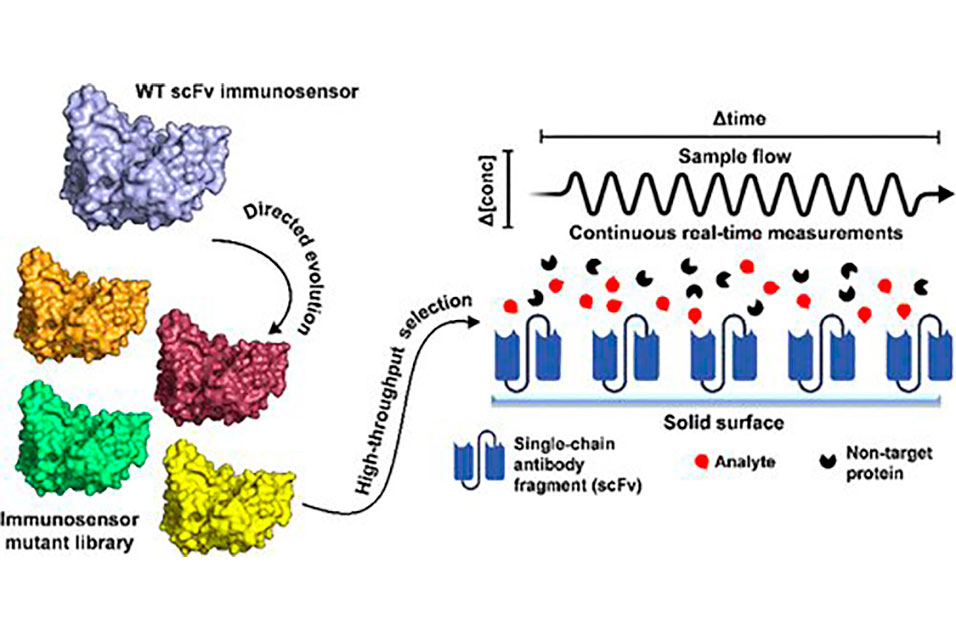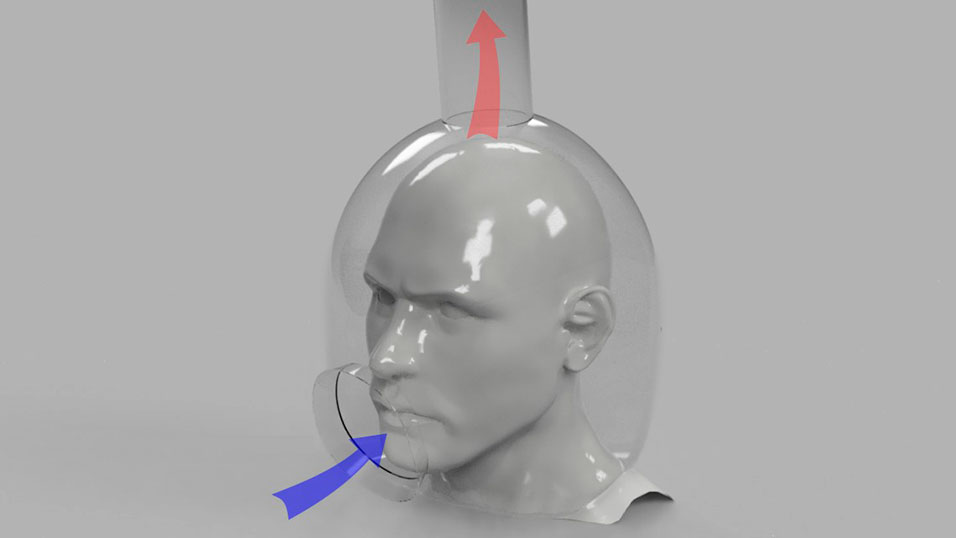MELBOURNE.- The research team, led by Dr Simon Corrie from
Monash University’s Department of Chemical Engineering and the ARC Centre of Excellence in Convergent Bio-Nano Science and Technology, took an antibody that binds EGFR (epidermal growth factor receptor) proteins and engineered it to monitor the concentration of EGFR proteins in serum solutions over time.
Co-authors of the paper, published in ACS Sensors, are Dr Christian Fercher, Dr Martina Jones and Professor Stephen Mahler from The University of Queensland and the Australian Institute for Bioengineering and Nanotechnology.
An inability to detect the growth of EGFR proteins in humans can be associated with the development of a number of tumours, including cancer, as well as the onset of diseases like Alzheimer’s.
Using an independent detection mechanism developed by the research team, involving fluorescent dyes, researchers created a biosensor from a well-known antibody that was able to ‘read out’ changes of the EGFR protein in real-time by monitoring detectable changes in the fluorescence spectra.
The ability to monitor protein biomarker concentrations in body fluids in real-time is invaluable for tracking patients at risk of rapid deterioration, including those requiring personalised drug monitoring or those at high risk of complications arising from critical conditions, like sepsis, heart attack or tumour response to treatment.
No one has been able to engineer an antibody for continuous testing until now.
“All the diagnostic tests that we are familiar with involve sampling something (blood, urine, tissue) at a particular point in time and taking the same to a lab to interrogate it. But for patients suffering from acute conditions, in which time to diagnose and rapid treatment are very important, this traditional diagnostic process is not good enough,” Dr Corrie said.
“Monitoring dynamic changes in proteins, for example protein levels increasing or decreasing over time, is likely to provide much more detailed information about a disease or treatment process, but the sensors required to do this don't exist outside of continuous glucose testing for diabetes.
“Our capacity to create antibodies, which bind reversibly to targets and can be ‘read out’ using fluorescence, means we can develop in vivo sensors. These sensors can monitor the levels of critical biomarkers as they change over time in response to a disease or treatment, rather than just sending a sample to a lab and getting a snapshot in a day or two.
“These biomarkers could include the amount of surface proteins on a cancer cell and whether or not a drug causes them to reduce in size, therefore testing the efficacy of treatment. It can also be used to monitor the concentration of potentially toxic drugs, like some antibiotics.”
This discovery was able to engineer an antibody fragment capable of reversibly binding to a protein analyte (scFv) in a chemical solution, while retaining the specificity of the original antibody sequence.
Through their efforts, continuous in vitro monitoring over multiple hours was successfully recorded.
“Work is underway to employ dyes that are much better suited to medical applications,” Dr Corrie said.
“In future, we expect that this process will be used to generate a range of biosensors that can monitor protein concentration continuously inside the human body, through a biopharmaceutical process, or in the environment.”










